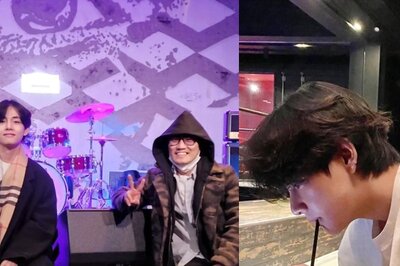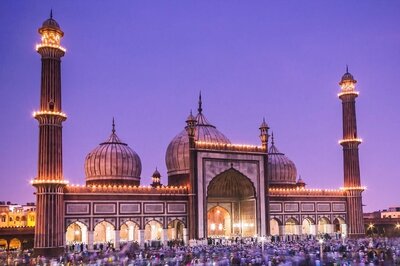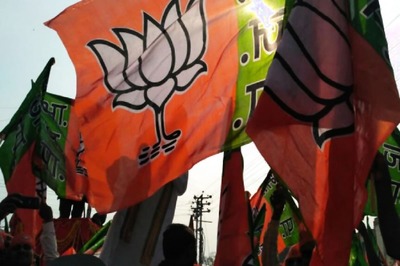
views
I regard the theatre as the greatest of all art forms, the most immediate way in which a human being can share with another the sense of what it is to be a human being — Oscar Wilde.
From time immemorial, theatre tends to crystallize emotions and desires into well-defined performances. As narratives grip our imagination, one may feel that greatest sense of connection with all human beings. Through this medium, artistes often disintegrate their identities to emulate different personalities.
“We believe that theatre is instrumental for social change, especially in the early twentieth century,” said Siddhartha Jose and Murtuza Khetty who directed a play titled Rajdhani for the Indo-French Theatre festival held at Alliance de Francaise, Bangalore recently. In conversation with City Express , the talented duo tell us more about their first directorial venture in theatre and future plans.
Tell us about the play Rajdhani.
Rajdhani is an Indian adaptation of the Jean Genet’s play titled Haute Surveillence also known as Deathwatch in English. The play revolves around runaway kids who have made the railway platform their home.
Hariya, Munna and Ikka are three kids, among many more of the kind. The story depicts their struggle with their lives, relationships, challenges and aspirations.
How difficult is it to adapt French plays to the Indian social context?
Doing adaptations of any play is a great task. The challenge here is to not lose the essence of what the original writer wanted to convey. People are people, be it French or Indian.
Hence it wasn’t so difficult to adapt the play to the Indian context. Initially, it did take us a while to come up with the parallel scenarios but once we had the plot everything else flowed.
Do you think we have embraced the ‘avant garde’ theatre in Bangalore?
It is a bit difficult to answer this one. When you say embrace, are we looking at it from the production point of view or from the audience’s. Let us try to answer it from both. In terms of productions, people are experimenting and trying out new things but these are few and far apart, we are getting there. And as for audiences, a very small section of people in Bangalore appreciate ‘avant garde’ theatre. We think that this is because we Indians are a little conservative in our notion of what constitutes as entertainment.
What are the latest trends observed in theatre today?
Theatre is constantly evolving albeit at a slow pace but still enough to ensure its survival and growth. We find a lot of adaptations now-a-days of traditional Indian stories or even classical plays that are being re-written to fit modern situations and scenarios.
Like we mentioned earlier, some groups are experimenting with concepts too. We are seeing more and more people wanting to be a part of eccentric productions which is a good sign for theatre.
Jean Genet was often known for his provocative portrayal of homosexuality and criminality. Do you think India has finally opened up to eccentric concepts in theatre?
It is a small but growing section of the audience that is comfortable with these concepts. As our society’s approach towards these concepts is changing, it will not be long when these plays run to packed audiences.
Do you think it is essential for artistes to produce meaningful works today?
Theatre is a powerful medium, which is why adapting traditional stories for the modern world is good. It can raise a lot of awareness and provoke thoughts about various problems.
Any future projects we need to look forward to?
This is our first directorial venture and we discovered that we share a good chemistry. We surely hope to do something together in future.




















Comments
0 comment